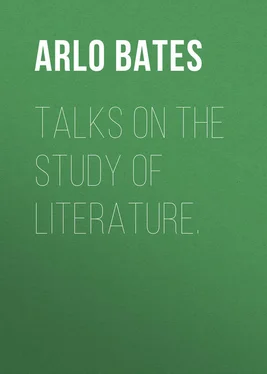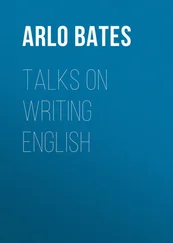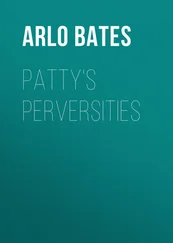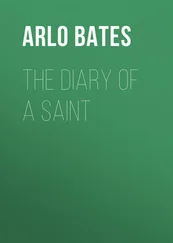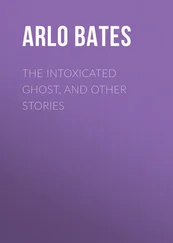Arlo Bates - Talks on the study of literature.
Здесь есть возможность читать онлайн «Arlo Bates - Talks on the study of literature.» — ознакомительный отрывок электронной книги совершенно бесплатно, а после прочтения отрывка купить полную версию. В некоторых случаях можно слушать аудио, скачать через торрент в формате fb2 и присутствует краткое содержание. Жанр: foreign_antique, foreign_prose, на английском языке. Описание произведения, (предисловие) а так же отзывы посетителей доступны на портале библиотеки ЛибКат.
- Название:Talks on the study of literature.
- Автор:
- Жанр:
- Год:неизвестен
- ISBN:нет данных
- Рейтинг книги:5 / 5. Голосов: 1
-
Избранное:Добавить в избранное
- Отзывы:
-
Ваша оценка:
- 100
- 1
- 2
- 3
- 4
- 5
Talks on the study of literature.: краткое содержание, описание и аннотация
Предлагаем к чтению аннотацию, описание, краткое содержание или предисловие (зависит от того, что написал сам автор книги «Talks on the study of literature.»). Если вы не нашли необходимую информацию о книге — напишите в комментариях, мы постараемся отыскать её.
Talks on the study of literature. — читать онлайн ознакомительный отрывок
Ниже представлен текст книги, разбитый по страницам. Система сохранения места последней прочитанной страницы, позволяет с удобством читать онлайн бесплатно книгу «Talks on the study of literature.», без необходимости каждый раз заново искать на чём Вы остановились. Поставьте закладку, и сможете в любой момент перейти на страницу, на которой закончили чтение.
Интервал:
Закладка:
By sincerity here we mean that which is not conventional, which is not theoretical, not artificial; that which springs from a desire honestly to impart to others exactly the emotion that has been actually felt. By the term "emotion" or "feeling" we mean those inner sensations of pleasure, excitement, pain, or passion, which are distinguished from the merely intellectual processes of the mind, – from thought, perception, and reason. It is not necessary to trespass just now on the domain of the psychologist by an endeavor to establish scientific distinctions. We are all able to appreciate the difference between what we think and what we feel, between those things which touch the intellect and those which affect the emotional nature. We see a sentence written on paper, and are intellectually aware of it; but unless it has for us some especial message, unless it concerns us personally, we are not moved by it. Most impressions which we receive touch our understanding without arousing our feelings. This is all so evident that there is not likely to arise in your minds any confusion in regard to the meaning of the phrase "genuine emotion."
Whatever be the origin of this emotion it must be essentially impersonal, and it is generally so in form. There are comparatively few works of art which are confessedly the record of simple, direct, personal experience; and perhaps none of these stand in the front rank of literature. Of course I am not speaking of literature which takes a personal form, like any book written in the first person; but of those that are avowedly a record of actual life. We must certainly include in literature works like the "Reflections" of Marcus Aurelius, the "Confessions" of Augustine, and – though the cry is far – Rousseau, and the "Journal Intime" of Amiel, but there is no one of these which is to be ranked high in the scale of the world's greatest books. Even in poetry the same thing is true. However we may admire "In Memoriam" and that much greater poem, Mrs. Browning's "Sonnets from the Portuguese," we are little likely to regard them as standing supremely high among the masterpieces. The "Sonnets" of Shakespeare which we suppose to be personal are yet with supreme art made so impersonal that as far as the reader is concerned the experiences which they record might be entirely imaginary. It is in proportion as a poet is able to give this quality which might be called generalization to his work that it becomes art.
The reason of this is not far to seek. If the emotion is professedly personal it appeals less strongly to mankind, and it is moreover likely to interfere with its own effective embodiment. All emotion in literature must be purely imaginative as far as its expression in words is concerned. Of course poetical form may be so thoroughly mastered as to become almost instinctive, but nevertheless acute personal feeling must trammel utterance. It is not that the author does not live through what he sets forth. It is that the artistic moment is not the moment of experience, but that of imaginative remembrance. The "Sonnets from the Portuguese" afford admirable examples of what I mean. It is well known that these relate a most completely personal and individual story. Not only the sentiments but the circumstances set forth were those of the poet's intimate actual life. It was the passion of love and of self-renunciation in her own heart which broke forth in the fine sonnet: —
Go from me, yet I feel that I shall stand
Henceforward in thy shadow. Nevermore
Alone upon the threshold of the door
Of individual life shall I command
The uses of my soul; or lift my hand
Serenely in the sunshine as before
Without the sense of that which I forebore, —
Thy touch upon the palm. The widest land
Doom takes to part us, leaves thy heart in mine
With pulses that beat double. What I do
And what I dream include thee, as the wine
Must taste of its own grapes: and when I sue
God for myself, He hears that name of thine,
And sees within my eyes the tears of two.
There came to Mrs. Browning a poignant moment when she realized with a thrill of anguish what it would mean to her to live out her life alone, separated forever from the lover who had won her back from the very grasp of death. It was not in the pang of that throe that she made of it a sonnet; but afterward, while it was still felt, it is true, but felt rather as a memory vividly reproduced by the imagination. In so far both he who writes impersonally and he who writes personally are dealing with that which at the instant exists in the imagination. In the latter, however, there is still the remembrance of the actuality, the vibration of the joy or sorrow of which that imagining is born. Human self-consciousness intrudes itself whenever one is avowedly writing of self; sometimes even vanity plays an important part. From these and other causes it results that, whatever may be the exceptions, the highest work is that which phrases the general and the impersonal with no direct reference to self. Personal feeling lies behind all art, and no work can be great which does not rest on a basis of experience, more or less remotely; yet the greatest artist is he who embodies emotion, not in terms of his own life, but in those which make it equally the property of all mankind. It is feeling no longer egotistic, but broadly human. If the simile do not seem too homely, we might say that the difference is that between arithmetic and algebra. In the one case it is the working out of a particular problem; in the other of an equation which is universal.
Mankind tests art by universal experience. If an author has really felt what he has written, if what he sets down has been actual to him in imagination, whether actual in experience or not, readers recognize this, and receive his work, so that it lives. If he has affected a feeling, if he has shammed emotion, the whole is sure to ring false, and the world soon tires of his writings. Immediate popular judgment of a book is pretty generally wrong; ultimate general estimate is invariably correct. Humanity knows the truth of human feeling; and while it may be fooled for a time, it comes to the truth at last, in act if not in theory. The general public is guided by the wise few, and it does not reason out the difference between the genuine and the imitation; but it will in the end save the real, while the sham is forgotten through utter neglect.
Even where an author has seemingly persuaded himself that his pretended emotions are real, he cannot permanently deceive the world. You may remember the chapter in Aldrich's delightful "Story of a Bad Boy" which relates how Tom Bailey, being crossed in love at the mature age of fourteen, deliberately became a "blighted being;" how he neglected his hair, avoided his playmates, made a point of having a poor appetite, and went mooning about forsaken graveyards, endeavoring to fix his thoughts upon death and self-destruction; how entirely the whole matter was a humbug, and yet how sincere the boy was in supposing himself to be unutterably melancholy. "It was a great comfort," he says, "to be so perfectly miserable and yet not to suffer any. I used to look in the glass and gloat over the amount and variety of mournful expression I could throw into my features. If I caught myself smiling at anything, I cut the smile short with a sigh. The oddest thing about all this is, I never once suspected that I was not unhappy. No one … was more deceived than I." We have all of us had experiences of this kind, and I fancy that there are few writers who cannot look back to a stage in their career when they thought that it was a prime essential of authorship to believe themselves to feel things which they did not feel in the least. This sort of self-deception is characteristic of a whole school of writers, of whom Byron was in his day a typical example. There is no doubt that Byron, greatly gifted as he was, took his mooning melancholy with monstrous seriousness when he began to write it, and the public received it with equal gravity. Yet Byron's mysterious misery, his immeasurable wickedness, his misanthropy too great for words, were mere affectations, – stage tricks which appealed to the gallery. Nobody is moved by them now. The fact that the poet himself thought that he believed in them could not save them. Byron had other and nobler qualities which make his best work endure, but it is in spite of his Bad-Boy-ish pose as a "blighted being." The fact is that sooner or later time tries all art by the tests of truth and common sense, and nothing which is not genuine is able to endure this proving.
Читать дальшеИнтервал:
Закладка:
Похожие книги на «Talks on the study of literature.»
Представляем Вашему вниманию похожие книги на «Talks on the study of literature.» списком для выбора. Мы отобрали схожую по названию и смыслу литературу в надежде предоставить читателям больше вариантов отыскать новые, интересные, ещё непрочитанные произведения.
Обсуждение, отзывы о книге «Talks on the study of literature.» и просто собственные мнения читателей. Оставьте ваши комментарии, напишите, что Вы думаете о произведении, его смысле или главных героях. Укажите что конкретно понравилось, а что нет, и почему Вы так считаете.
